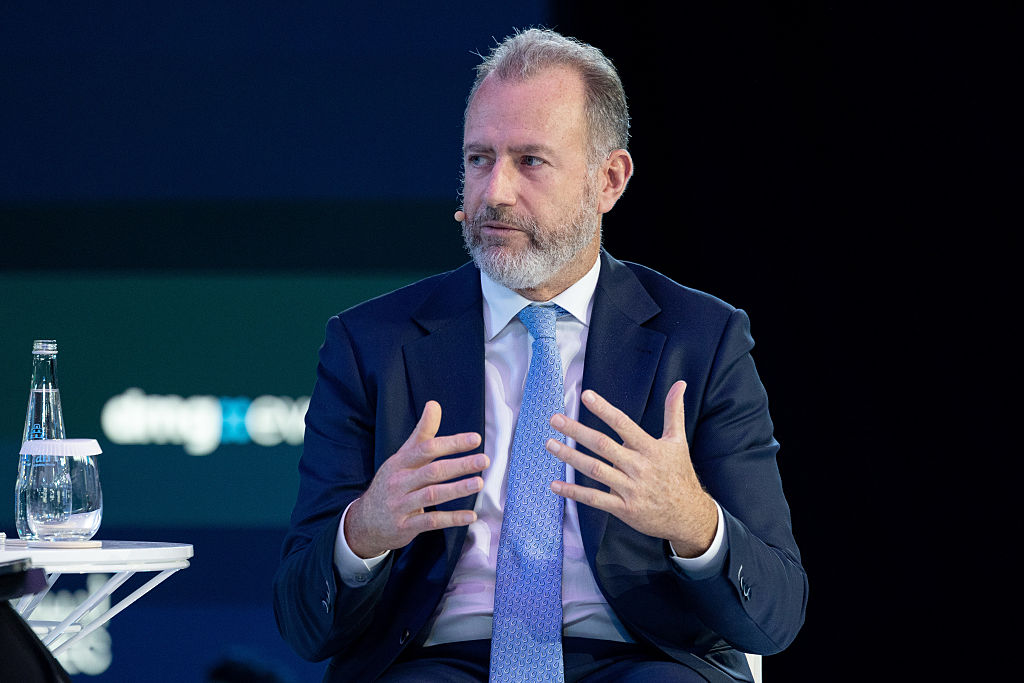Polluters Will Say Anything to Hide Their Emissions Records
Giant corporations like ExxonMobil are calling on the Supreme Court to block a California law that would require them to release their emissions and climate records. The argument? It would violate businesses’ free speech.

Dan Ammann, president at ExxonMobil Corp., at the ADIPEC conference in Abu Dhabi, United Arab Emirates, on Tuesday, November 4, 2025. Exxon has sued the state of California over its new emissions rules. (Walaa Alshaer / Bloomberg via Getty Images)
Powerful business lobbyists are asking the US Supreme Court to use the First Amendment to block California from requiring corporations to publish their emissions data.
Pro-industry trade groups and their lawyers argue that new transparency and disclosure requirements violate businesses’ free speech rights.
An emergency appeal filed in recent weeks by the US and California Chambers of Commerce, as well as the American Farm Bureau Federation, the Los Angeles County Business Federation, the Central Valley Business Federation, and the Western Growers Association, accuses the Golden State of waging an “open campaign to force companies into the public debate on climate issues” and “pressure [firms] to alter their behavior.”
The letter’s authors complain that lawmakers are attempting to “make sure that the public actually knows who’s green and who isn’t.”
California’s new laws, set to go into effect January 1, 2026, will require larger companies operating in the state to publicly state their “climate-related financial risk,” as well as issue emissions records and public assessments of their environmental impacts.
This follows a growing legal trend that sees businesses fight transparency rules by citing the Constitution’s “compelled speech” protections. Corporations claim that the First Amendment shields them from being forced to speak out on issues and have used the principle to fight emissions disclosures, drug price caps, social media reforms, and a suite of other consumer and public health protections.
Businesses say transparency rules, like California’s, illegally force them into speaking out on what they consider politically controversial topics, essentially arguing that the disclosure rules put words in their mouth.
Experts are warning that if the courts agree with these firms, the effects could be devastating to wide-ranging regulatory efforts.
“Anything can be political and controversial because science doesn’t deal in absolute certainty,” James Wheaton, founder of the public interest law firm the First Amendment Project, told the Lever’s Katherine Li last year.
The US Chamber of Commerce represents millions of businesses big and small, yet most of the trade group’s backing comes from just a handful of the powerful corporate interests. That includes the oil-and-gas-linked conservative Koch Foundation, which in the last thirty years has spent more than $140 million promoting climate denialism.
The Chamber is also backed by ExxonMobil, the world’s largest publicly traded oil and gas company.
Exxon has already sued the state of California over its new emissions rules, arguing they would mandate that the company “serve as a mouthpiece for ideas with which it disagrees.”
In 2023, Exxon spent more than $459,000 lobbying the state of California on the two climate disclosure laws in question, among other issues.